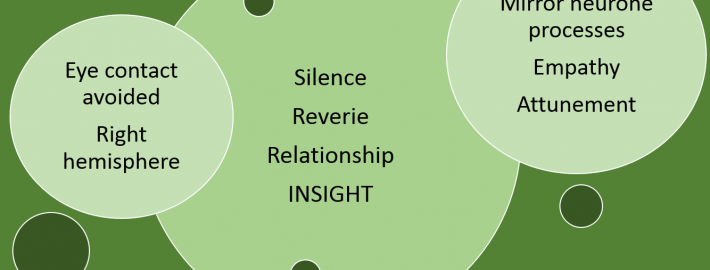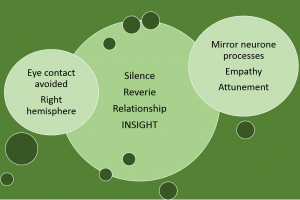
This blog is for anyone wanting to touch base with their relationship. I aim to cover some data on relationships. To identify common problems that can occur in even the most fairy-tale union and to provide a reality check about sex in relationships. In doing this I hope to provide a little nudge to nourish and sustain your own partnership.
A little bit about me
As well as writing from a theoretical perspective I have personal experiences of the ups and downs of relationships. I am a trained couple therapist, and also have had my share of relationships long term, medium term and short term. I recognise, generally, if relationships are not nurtured or attended to, they fail. This is not through intent but because of lack of foresight, experience, time, skills, desire, fear (and occasionally self interest- as manifest in abusive relationships).
Why write a blog ?- ‘Sharing is caring’
As a species we are tribal, we like to belong to a group, we feel safe when we share characteristics of group members. This is also true for our relationships. But couples tend to only present the good side of their relationship so we don’t often experience the reassurance that our relationship is actually quite similar to everyone else’s.
Kirsten Neff, who writes on Self Compassion, describes one of the elements of compassion as ‘common humanity’. The two others are kindness and mindfulness. When we recognise we are similar to others it can be reassuring: ‘this is ok’. Neff calls this ‘common humanity’. Conversely, when we feel different we might want to withdraw, feeling something is wrong with us; that we are different. This can be similar in relationships.
If as a couple you feel you are not doing very well it can be reassuring to know that many of the negative experiences in relationships are had by most couples. They are caused by similar things, very often our attachment history, or miscommunication. By writing about some of the things that are often ‘behind closed door’ I hope to reassure you that your relationship is normal, and to empower you to make positive changes. These can both nourish you, your partner and your relationship.
Quite Interesting
2021 ONS data
- 57.8% of adults over 16 years are living as a couple
- Of these 75.7% in a marriage or registered civil partnership.
- Since the last 2021 census there is a trend for more cohabitation and fewer civil arrangement
What are relationships like?

I suspect those in good relationship, feeling happy, and fulfilled are not reading this. This is what relationships can be like ‘happy and fulfilled’
Many factors impact on how likely we are to have a totally fulfilling relationship. Examples include our own ‘attachment blueprint’; how, as a child we experienced love, giving and receiving love and conditions that might be attached to love.

In 2021 (Meyer and Sledge) identified some of the main areas of conflict in relationships. Unsurprisingly these included-communication, personal habits, household chores, finances, parenting, decision making, quality time together, sex, screen time, role expectations, time management and finally, ‘the in-laws’.
Some of these we have less ability to influence than others. Individuals can take personal responsibility for strategies to manage emotions arising from things they cannot change. If your partner bites their nails, the control is with you to manage the feelings that arise. If you expect them to change ‘because they love you’ there is a big risk of failure, muddled with an irrational belief your partner doesn’t love you because they haven’t stopped biting their nails! It can be these tiny things that fester and grow and may cause a disproportionate level of annoyance towards a partner.
Very few relationships are perfect all the time. Below I have tried to enable you to see your relationship with some clarity and hope. It is likely that most of your difficulties are common amongst many couples. I first address the question of sex, how often ‘should’ we have it (it varies!)
How much sex should we be having?
-
From International Society of Sexual Medicine
- This society would suggest there is no normal frequency for sexual intimacy in a relationship providing everyone in the relationship is happy.
-
Research from USA
- 50-57% heterosexuals men and women engage in weekly sexual activity (18-44 year olds over 18 year period)
- 1.3 % no sexual activity
- 5.2 % once or twice a year (data 2016-2018)
- 32% 1-3 times a month
- 57% weekly
-
2022 Post Pandemic
- In the UK during the pandemic married people had a more active sex life which has continued post lockdown
-
The Good enough Sex Model
Michael Metz and Barry McCarthy 2010 described 5 recognisable purposes for sex in a relationship. These are pleasure, intimacy, reproduction, stress reduction, self esteem. Metz and McCarthy in their Good Enough Model encouraged a moving away from the aspirational ‘perfect’ sexual experience, where the fear of failure could easily result in being turned off sex, or not being able to ‘perform’.
They spoke of pleasure, for pleasures sake being a good enough reason for sex, so often the pressure of procreation or orgasm can detract from the overall pleasure of the complete experience.
I would also encourage talking about beliefs and attitudes around sex and intimacy. It might be through talking that you realise your ability to enjoy sex is stifled by preconceptions, different moral values, false beliefs. One of you might feel shame or guilt about certain aspects of sex, masturbation, use of ‘sex toys’ or anal sex for example, whilst the other has no inhibitions. This can create unacknowledged emotions around feeling pressurized, feeling needs not met, feeling anxious, rejection which you might blame your partner for.
As an exercise you could write down all the perceptions or beliefs you and your partner know of, or have, about one aspect of your sexual relationship that causes difficulties, and have a discussion about them. The discussion can be very helpful both in connecting to each other but also providing a neutral, non judgmental space to talk about a difficult subject.
Finally using different ways to achieve arousal can provide inspiration and flexibility. Arousal can be achieved through contact and intimacy with your partner, intimacy, self arousal through masturbation and through creative, imaginative role enactment. It does not have to end in orgasm.
Summary
Sex plays an important part in a relationship. It is also is a source of problems-insecurity, shame, different needs and expectations. Talking about sex, even to your partner may be difficult. However, the majority of these issues can be resolved by beginning a conversation and recognising your differences as well as your similarities.
Remember sex can be for-pleasure, self esteem, connection, procreation and stress relief. Enjoy.
Ways to enhance your relationship
 Many of us believe we communicate well, we are able to express ourselves, or we purposefully put aside time to talk to our partner. Communication is 2-way. How many of us can say we listen to our partner, not to respond, not with thoughts in our head about a counter argument, but to deeply hear and attend to the meaning and emotion of what they are sharing.
Many of us believe we communicate well, we are able to express ourselves, or we purposefully put aside time to talk to our partner. Communication is 2-way. How many of us can say we listen to our partner, not to respond, not with thoughts in our head about a counter argument, but to deeply hear and attend to the meaning and emotion of what they are sharing.
To recognise that what they say is as important to them, as what you say is as important to you.
If you would like to improve your communication a short exercise to do with your partner can be found here.
There are problems in a relationship that will not go away. It can be useful to acknowledge these and recognise that they impact on your relationship, but they do not mean the relationship is bad, failing or threatened. One of you may have an important relationship with an individual your partner does not like. Each of you are entitled to have these feelings, but it is not helpful to try and change the others mind. The problem is how to allow this person to be part of your ‘relationship’ without causing disruption.
Problems may manifest when there is a change in circumstances, for example illness or redundancy. The change can impact on the relationship and on each partner differently. Being able to talk about this without blame can be hard but very rewarding.
Some problems, when faced honestly may result in the ending of a relationship. The choice to have children or not, for example. This can be one of the most courageous things to do, ending a relationship that is working but you both want different things and therefore unsustainable in the long term.
-
Feeding the relationship
- Spending quality time together-The ability to do this can vary depending on your circumstances. It is hard with young children, yet just as important. Many relationships fail because ‘we just grew apart when the children came along’. Having a date night is a popular concept. If you can find another couple with children offering to babysit in turns. Or choosing something you both want to watch on TV and both committing to watching it together, no popping off to do something else. Having a joint hobby, maybe something to try, even better if you want to both learn from scratch.
- Supporting each other-relationships work best when attachment feels secure and unconditional. When making decisions it should be your partner who you seek support/encouragement from, not your friend or parent, they are secondary. Being there for your partner when they are tired, stressed, ill, angry, confused, anxious, sad; NOT needing to fix it, being alongside, understanding and compassionate. This may mean putting your own ‘stuff’ to one-side for a short period of time.
- Collaboration-you are in this together. Having an intention that focuses on what is best for your relationship rather than what is in it for me. Collaboration and consistency supports a healthy environment for growing children.
- Looking after your mental and physical health. Supporting and facilitating your partner to do the things they enjoy. Noticing when your partner is not able to do these and encouraging them.
-
Recognising Differences
Differences may be obvious, your sex, ethnicity, religion, less obvious include social class, politics, beliefs, even less obvious but equally significant include character traits, for example tidy, common sense, playful, hard working. Because of these differences you and your partner may have different ways of viewing the world and your experiences. Neither of you is right or wrong but it is extremely useful to explore each other’s view of the world to understand why attitudes and behaviours may appear to you to be completely weird. This level of understanding can ease frustrations and misunderstandings. Differences that might arise from your upbringing such as the importance given to ‘good manners’ or the attention given to days such as Fathers Day or Valentine’s day can be useful to explore, but more relevant is the awareness that these differences exist and may need to be negotiated.
Finally-The Negative Cycle
This is one of the most common reasons couples attend therapy. If you and your partner find yourselves acting out in similar ways after most disagreements you are likely to be caught up in ‘your negative cycle’
A simplistic description might be;
A ‘Why didn’t you ….’
B ‘ sorry, I forgot’
A ‘ How could you forget..’
B ‘ I can’t help forgetting’
A ‘ But I told you …’
B ‘I can’t cope when you are like this’ B takes themselves out of the room to end the argument
A Following B ‘You can’t just leave it like this I need to know what you expect me to do’
B Silence.
A Shouting/crying/stamping
This pattern of behaviour often originates in childhood, or other past intimate relationships NOT what is happening there and then. This is why it can be difficult to change without a third person to help interpret the deeper emotions that are going on in the interaction.
A- A is likely to feel let down. They might describe feelings of not being important enough, or not valued, even unloved, irrelevant ‘invisible’. A defence of anger is the response. A is making themselves visible, important to get the attention that they feel they deserve.
B-B possible feels a failure, they have not done what was asked, emotions of inadequacy, shame, guilt may arise so they want to disappear because they possibly feel undeserving or not good enough.
A- The act of B moving away reinforces the idea for A that they are not important
B- as A continues to challenge their forgetfulness, B feels further shame. B might at this point become very defensive and shout back, or even remove themselves from the house
A- might at this point become completely confused as to B’s dramatic behaviour, after all B was in the wrong!
A and B are now feeling their relationship is on the line.
Does this feel familiar?
-
Learning from the negative cycle
The emotions that arise in a ‘negative cycle’ are from past attachment history and not from what is happening in the here and now. It takes time and self awareness to move away from habitual attachment behaviours.
A and B might have managed this differently
A ‘Why didn’t you ….’ becomes ‘ I notice you have forgotten something and I feel as if I am not important to you’ (offering a solution ‘we can manage for the time being, its OK’)
B ‘ sorry, I forgot’ becomes ‘ You are important to me, I hate forgetting things it makes me feel a failure, ( and also able to offer a solution- can we do anything now to remedy the situation? ‘)
NOTE- Both parties are able to acknowledge and say out loud what they are feeling. They do not react to their emotions. This also opens opportunity for the couple to show empathy and care for the other as they struggle with powerful emotions.
My Summary
When we commit to a long term relationship we do not to know what the journey will entail. It will reveal aspects of ourselves we didn’t know existed and things that might have been endearing become annoying. There will be unexpected bumps and disappointments, as well as joyful times. Manging the rough with the smooth as a team helps.
As with long term projects continue to review, modify and reflect, life and people are dynamic, we change. Be mindful of your love and intention. Be honest.
If you want further support in your relationship couple therapy is available.










